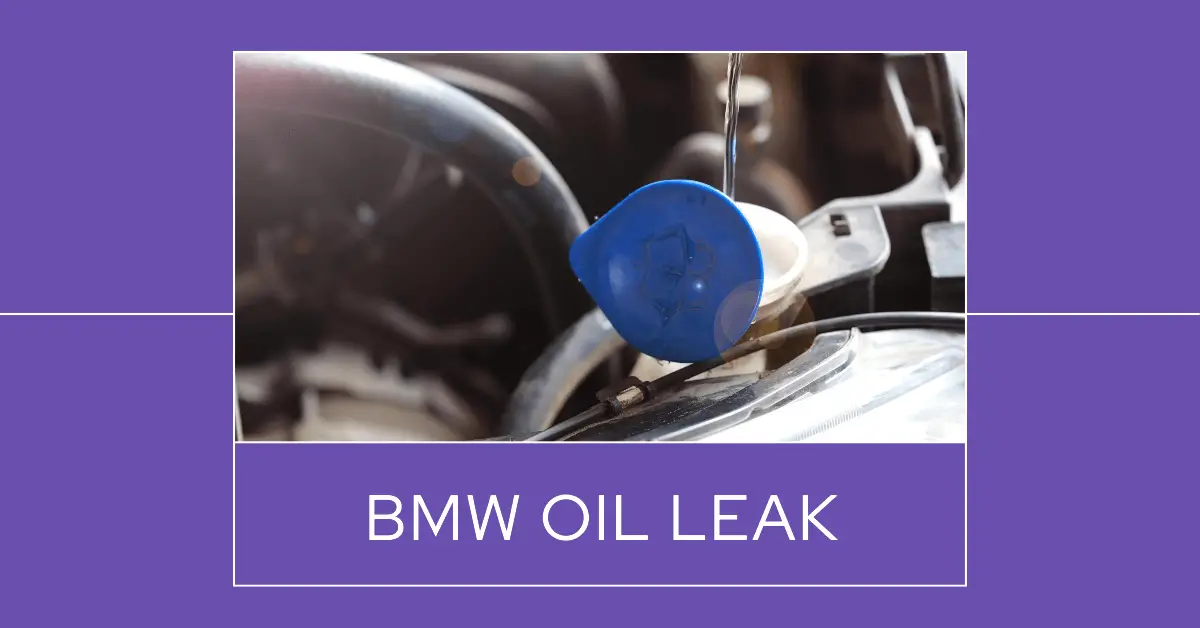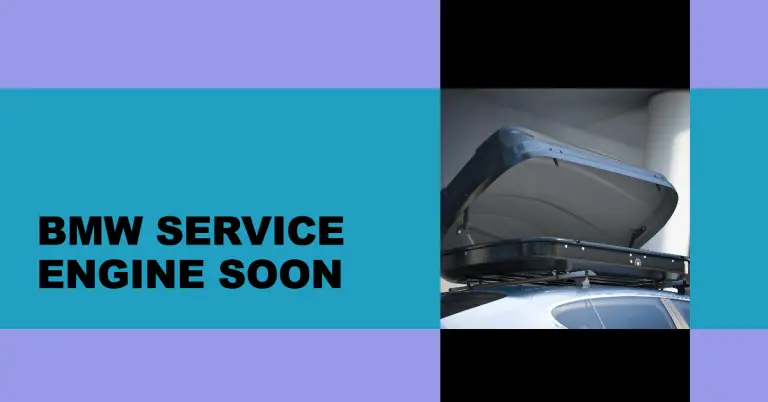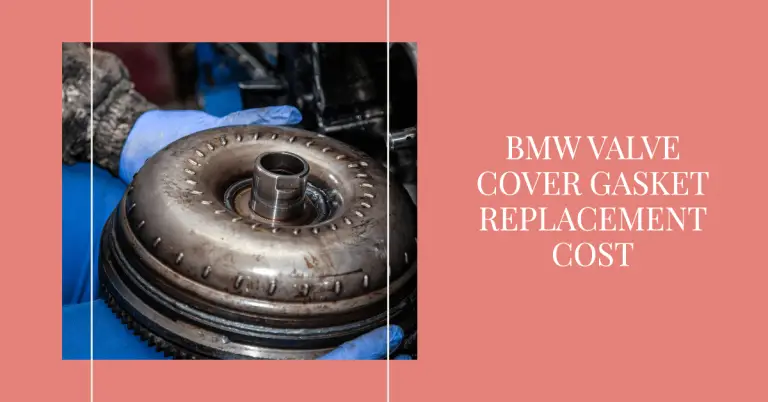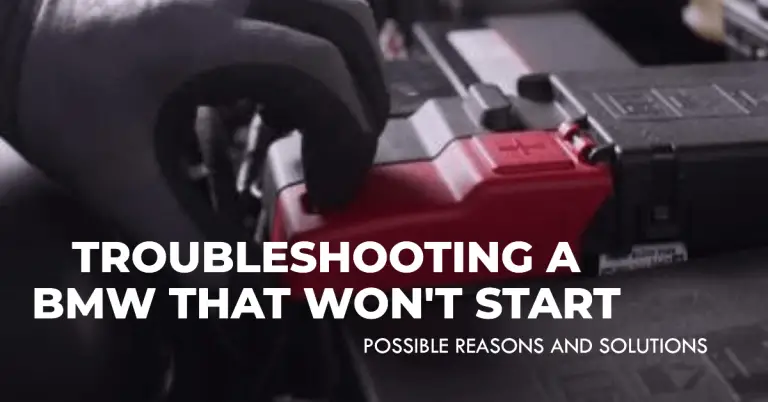BMW Oil Leak: Causes, Symptoms, and Solutions
Do you have a BMW with an oil leak? If you’ve noticed the smell of burning oil, a rattling noise from the engine, or oil spots in your driveway, your BMW may have a leak. But what causes oil leaks in BMWs and how can you fix them?
Oil leaks in BMWs are often caused by failing seals or gaskets. The valve cover gasket, oil filter housing gasket, oil pan gasket, and main engine seal are common sources. Replacing the leaky gasket or seal is the proper repair.
In this extensively researched blog post, we’ll cover everything you need to know about diagnosing and fixing BMW oil leaks. You’ll learn where leaks happen, symptoms to look for, repair costs, solutions to stop leaks, and how to prevent future leaks with proper maintenance.
Whether you want to fix the leak yourself or assess if a shop quote is fair, you’ll be armed with the knowledge to address BMW oil leaks confidently. Let’s get started!
What Causes Oil Leaks in BMWs?
Oil leaks can happen in any car, but BMWs tend to be more susceptible due to their complex engine design. As a BMW ages and accumulates miles, engine gaskets and seals deteriorate and begin to fail. This allows oil to escape at the seams. Here are some of the most common causes of oil leaks in BMW models:
1. Worn Valve Cover Gasket
One notorious cause of BMW oil leaks is a leaking valve cover gasket. The valve cover encases the cylinder head and valves. Its gasket creates a tight seal to contain oil in the valvetrain. But over time, heat cycles and engine vibrations can cause the rubber or cork valve cover gasket to harden and lose its seal.
Once the BMW valve cover gasket fails, oil will drip from the edges down the cylinder head and engine block. Valve cover gasket leaks tend to be slow, resulting in oil spots directly beneath the leak. Replacing this gasket is a very common repair on older BMWs.
2. Damaged Oil Pan
The oil pan at the bottom of the BMW engine can also develop leaks. Engine oil is stored in the pan, and leaks here can be caused by:
- Cracked oil pan – Impacts from road debris can crack the metal oil pan, causing a major leak.
- Failed oil pan gasket – The gasket sealing the pan’s edges can wear out. Hardened old gasket material also may not form a tight seal when re-installed.
Oil pan leaks will drip oil onto the ground underneath the middle of the car. BMW oil pan gasket replacement is a 5-6 hour repair job since the pan must be lowered from the engine block to access the gasket.
3. Bad Oil Filter Housing Gasket
On many BMW engines, the oil filter housing is attached to the engine block with a large o-ring gasket. This flexible gasket can become brittle or misshapen over time, allowing oil to escape the seam.
The oil filter housing gasket often leaks in conjunction with the valve cover gasket. Since they are in close proximity at the top of the engine, leaks will mix together on the exterior.
Replacing just the valve cover gasket won’t solve the oil leaks if the filter housing also needs attention. Diagnosing the exact leak source is important.
4. Defective Seals
In addition to external gaskets, BMW engines use internal seals to contain oil pressure within the engine and prevent leaks. Common problem areas include:
- Rear main seal – This seal mates the engine crankshaft to the block. Leaks here will drip from the bottom seam of the engine.
- Oil cooler seals – Leaking seals around the oil cooler housing allow oil to drip down the back of the engine.
- Timing cover seals – Oil leaks at the front of the engine indicate worn timing cover seals.
These internal seals tend to be more challenging to replace since the engine must be partially disassembled. But fixing them is critical to stop oil loss into the crankcase.
5. Oil Leaks After an Oil Change
One time BMW owners commonly notice an oil leak is right after an oil change. This doesn’t necessarily mean the technician made a mistake or caused a leak. More likely, there was already an existing leak that you hadn’t noticed earlier.
How does this happen? Over time, oil leaks often cover up or mask themselves. Oil drips can accumulate dirt and road grime, masking the leak’s source. Leftover oil residue can temporarily plug a leak.
When fresh, clean oil is added during an oil change, it will flow freely through the leak points. This can suddenly make the oil leak obvious where it wasn’t before the change.
Symptoms of a BMW Oil Leak
Oil leaks slowly drain your engine oil over time. Eventually this lack of sufficient oil will cause engine damage if left unchecked. Here are some common warning signs of an oil leak on your BMW:
Oil Spots Underneath Your Car
The most obvious symptom of an oil leak is noticeable spots on the ground under your BMW. You may see oil spots in your driveway where the car is normally parked. The amount and location of the drips will depend on the leak source.
Small leaks like a valve cover gasket may result in light spotting under the engine compartment. Heavier leaks like a rear main seal can leave large oil puddles directly beneath the center of your car.
Look for oil spots after your car has been parked overnight. Oil can take time to drip down the engine. The spots will be more obvious after sitting.
Low Oil Level/Need to Frequently Add Oil
Check your BMW’s engine oil level frequently via the dipstick. If you have to add a quart of oil more often than usual, a leak may be slowly draining your oil.
Keep a close watch on oil level changes. Even small leaks require topping up the oil more often over time. Letting oil run too low between changes can accelerate future engine wear.
Burning Oil Smell from the Exhaust
Pay attention for any burning oil smells emanating from your BMW’s exhaust. Oil leaks allow oil to drip down the engine exterior. This oil can reach the hot catalytic converter or exhaust components.
When oil hits these extremely hot surfaces, it will burn and create foul smelling exhaust smoke. This is a clue that oil is escaping somewhere higher up on the engine.
Rattling Noise from the Engine
As an engine oil leak continues to drain your oil, the level may eventually fall low enough to affect lubrication inside the engine. Running an engine very low on oil can result in noisy valvetrain components and timing chain rattles.
These noticeable rattling noises tend to go away after topping up the oil to proper level. So if you hear them, check your oil immediately to avoid internal engine damage.
The Check Engine Light Illuminates
BMW’s onboard computer will detect low oil level or pressure changes caused by an oil leak. This triggers the check engine light to alert the driver.
Diagnostic trouble codes related to oil level or leaks should not be ignored. The check engine light is another clue to visually inspect for oil leaks and top up your BMW’s oil level right away.
Where are BMW Oil Leaks Located?
Pinpointing the exact source of an oil leak is important for a proper repair. BMW oil leaks tend to occur in some common areas, with the engine being most prone. Let’s look at specific leak locations and what to inspect:
1. Engine Oil Leaks
Engine oil leaks stemming from gaskets and seals make up the majority of BMW oil leaks. Here are the most common engine leak sources:
Valve Cover Gasket Leak
A leaking valve cover gasket is one of the most widespread oil leaks on BMW engines. Oil will drip down the cylinder head and front of the engine from a failing valve cover gasket.
Inspect the gasket closely to confirm cracks or hardening. Also check for warpage of the valve cover itself. Irregularities in the sealing surfaces prevent an airtight seal.
Oil Pan Gasket Leak
Inspect the large gasket running along the perimeter of the oil pan underneath the engine. Cracks or distortion in this large rubber gasket can cause leaks. The pan itself may be damaged or warped as well.
Oil pan gasket leaks tend to produce drips underneath the middle of the engine block. Oil will drip directly down from here.
Oil Filter Housing Gasket Leak
The circular oil filter housing has a large o-ring gasket where it mounts to the engine block. If this gasket becomes brittle or damaged, oil can leak through the loose seal.
Check this flexible o-ring gasket for any cracks or deformation that open up the sealing surface.
Rear Main Seal Leak
The rear main seal mounted at the back of the crankshaft is notorious for leaks, especially on older BMW engines. Oil weeping at the bottom seam between the engine and transmission indicates a rear main seal leak.
This critical seal is difficult to access and replace in many BMW engine configurations, increasing repair complexity and costs.
2. Transmission Oil Leaks
In addition to the engine, BMW’s automatic transmissions also require diligent inspection for signs of oil leaks:
Transmission Pan Gasket Leak
Automatic transmission fluid leaks are commonly caused by a degraded transmission pan gasket. The gasket seals the perimeter of the pan. Hardening, distortion, or improper installation can open up leaks.
Transmission pan gasket leaks will drip ATF oil directly underneath the pan location. Watch for red fluid spots.
Transmission Input Shaft Seal Leak
The seal around the transmission input shaft can fail and leak also. Input shaft seal leaks typically result in ATF dripping from the bellhousing and down the back of the transmission case.
By thoroughly inspecting the engine and transmission, you can zero in on the root cause of BMW oil leaks for a proper repair. Pay special attention to worn gaskets and seals that commonly fail.
How Much Does it Cost to Fix a BMW Oil Leak?
BMW oil leak repair costs widely range based on the affected components and complexity of the job. Minor external leaks average $200 to $400 for parts and labor to reseal. But larger jobs can quickly exceed $1000+ in repair bills. Here are typical ranges:
- Valve cover gasket replacement – $400 to $1200. Labor 1-3 hours.
- Oil pan gasket replacement – $600 to $1500. Labor 5-6 hours.
- Oil filter housing gasket – $300 to $900. Labor 1-2 hours..
- Rear main seal replacement – $1000 to $2000. Labor 6-10 hours.
The extensive labor times required for major engine resealing jobs really drive up BMW oil leak repair costs. Special tools and experience working on BMW engines are needed as well.
Attempting DIY repairs can save on labor costs. But you need to be very familiar working on BMWs, have a garage full of tools, and plenty of time. Be realistic about your DIY abilities before starting major engine disassembly.
Using a trusted independent BMW specialist for oil leak repairs is recommended. They will have the expertise to properly diagnose BMW oil leaks and parts sourcing. BMW dealerships often charge premium rates for repairs.
Solutions for BMW Oil Leaks
Once you’ve identified the source of BMW oil leaks, here are the top solutions to stop and repair them:
Inspect the Leak Thoroughly
Carefully clean the engine and transmission to pinpoint the exact leak location. Oil leaks can accumulate grime over time that masks the source. Pressure washing is very helpful for diagnosis.
Consider using a UV dye tool to inject fluorescent dye into the oil system. The dye will glow brightly under UV light exactly where external oil leaks are occurring. This can precisely identify the leak before repairs.
Flush Old Oil and Use Additives
For minor oil leaks or between repairs, try using engine flush chemicals and oil additives. These products can help clean sludge that may be plugging weak seals and gaskets.
Adding leak repair additives to fresh oil can also help stop or slow small leaks. The thicker formula can flow less freely through cracks. Use sparingly and change oil normally to avoid sludge buildup over long terms.
Replace Gaskets and Seals
Replacing leaking gaskets, o-rings, and seals is the only permanent solution for BMW oil leaks. And in most cases replacement is necessary. Upper engine resealing jobs include:
- Valve cover gasket – Use a high quality gasket and sealant for the new gasket. Ensure sealing surfaces are clean.
- Oil filter housing gasket – A new o-ring type gasket is required to stop leaks here.
- Oil pan gasket – This is a big job, so replace it with an OEM or performance aftermarket gasket.
For internal seals, the rear main seal and timing cover seals often need replacement on higher-mileage BMW engines. This requires more intensive disassembly but is critical to fix major oil loss into the crankcase.
Only use quality OEM or reputable aftermarket gaskets and seals – cheap parts will leak again quickly. Carefully following BMW specs will ensure a tight seal.
Regular Maintenance
The best way to prevent BMW oil leaks is diligent maintenance:
- Change oil regularly – Help maintain gasket sealing by preventing oil sludge buildup. Stick closely to BMW’s oil change interval recommendations.
- Replace gaskets proactively – If a gasket is nearing the end of its expected lifespan, replace it before it fails completely.
- Fix leaks immediately – Ignoring slow leaks allows additional engine damage. Prompt repairs limit sludge and contamination entering the oil system.
By servicing your BMW’s engine often and making repairs quickly, you can achieve much better long-term reliability. Your BMW will be less prone to oil leaks.
Frequently Asked Questions About BMW Oil Leaks
Many BMW owners have similar questions when dealing with oil leaks. Here are answers to some of the key oil leak FAQs:
What Oil Stop Leak Products Work Best for BMWs?
If you want to slow a small leak between repairs, try an additive like BlueDevil Oil Stop Leak or Lucas Engine Oil Stop Leak. Use sparingly and change oil regularly to avoid potential sludge issues. These products won’t permanently fix significant leaks.
Is it Safe to Drive with an Oil Leak?
You can drive a BMW a short distance to the shop with a slow oil leak. But any substantial leaks should be repaired as soon as possible. The longer you drive leaking oil, the greater the risks of overheating or engine failure. Top up oil level frequently if leaks are present.
Can Oil Leaks Cause Engine Failure?
Yes, running an engine very low on oil can result catastrophic engine damage. Oil leaks slowly drain oil over time. This lack of adequate lubrication will eventually lead to premature engine wear and failure. Never ignore oil leaks or warning lights indicating low oil level or pressure.
How Often Should I Check My Oil with a Leak?
Check your BMW’s engine oil level at least once a week if leaks are present. Top up as needed to keep oil in the safe range. Monitor oil use closely to determine how quickly it is leaking. Frequently checking oil level helps prevent over-drainage and costly damage.
Do BMW Extended Warranties Cover Oil Leaks?
BMW extended warranty plans (additional 1-3 years beyond the 4 year/50K mile new car warranty) generally cover seals and gaskets. So oil leaks stemming from these components would be included for repair coverage, less any deductible. Of course warranty terms differ, so check coverage details. Also note that aftermarket extended BMW warranties may exclude seals/gaskets.
Conclusion
Oil leaks are a fairly common issue on older BMW models. But diagnosing the leak location and repairing the underlying gasket or seal issue is essential.
Significant BMW oil leaks should never be ignored. The dripping oil will eventually cause serious engine damage if left unfixed. Identify the early warning signs like oil spots, smells, and noises to prevent excessive leakage.
While BMW oil leak repairs can be costly for major engine resealing jobs, they are critical for the long-term health of your engine. Investing in preventative gasket replacement and diligent maintenance pays off by keeping your BMW’s legendary performance and longevity intact.







